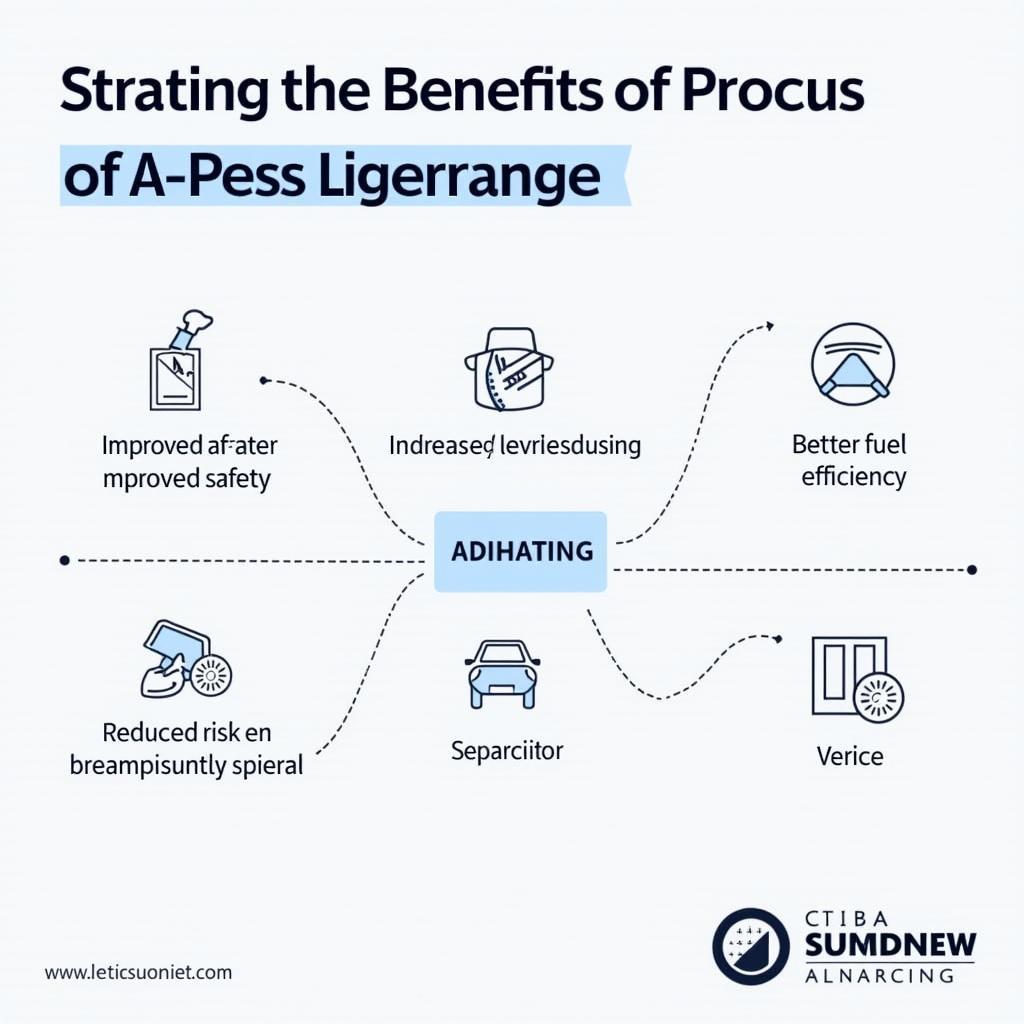When you take your car in for servicing, you’re essentially investing in its longevity and your peace of mind. But What Happens In A Car Servicing, exactly? It’s more than just an oil change; it’s a thorough check-up for your vehicle. This guide delves deep into the intricacies of a car service, explaining the processes involved and why they are crucial for your car’s health.
Unpacking the Mystery: What Does a Car Service Entail?
A car service is a series of inspections and maintenance procedures performed by qualified technicians to ensure your vehicle runs smoothly and safely. The specific tasks performed during a service can vary depending on the make and model of your car, its age, mileage, and the type of service required. However, certain essential checks remain consistent across the board.
The Cornerstones of a Car Service: Key Checks and Procedures
- Fluid Level Inspection and Top-Ups: Engine oil, coolant, brake fluid, power steering fluid, transmission fluid, and windshield washer fluid are all vital for your car’s operation. Mechanics will check their levels and top them up as needed.
- Oil and Filter Change: Engine oil lubricates moving parts, reduces friction, and prevents overheating. Over time, it degrades, requiring replacement. The oil filter traps contaminants, and changing it ensures optimal oil flow.
- Tire Pressure and Condition Check: Correct tire pressure ensures even wear, improves fuel efficiency, and enhances handling. Technicians will inflate your tires to the recommended pressure and inspect them for damage or uneven wear.
- Brake System Inspection: Your brakes are critical for safety. Mechanics will inspect brake pads, discs (rotors), calipers, and brake lines for wear and tear and recommend replacement if necessary.
- Battery Test: The battery provides the electrical power to start your engine and power various electrical components. Technicians will test its charge and overall health.
- Air Filter Replacement: The air filter prevents dust and debris from entering the engine, ensuring optimal combustion. A clogged filter restricts airflow, reducing engine performance.
- Lights Check: Malfunctioning lights pose a safety hazard. Mechanics will check all exterior and interior lights, including headlights, taillights, brake lights, turn signals, and hazard lights.
- Visual Inspection: A visual inspection of the engine bay, belts, hoses, suspension components, and exhaust system helps identify potential issues early on.
Why Is Regular Car Servicing Important?
Regular servicing offers numerous benefits, including:
- Enhanced Safety: Servicing ensures that critical safety components like brakes, tires, and lights are in optimal condition, reducing the risk of accidents.
- Increased Vehicle Lifespan: Regular maintenance helps prevent premature wear and tear on engine components, transmission, and other vital parts, extending your car’s lifespan.
- Improved Fuel Efficiency: A well-maintained engine with clean filters, proper tire pressure, and optimal fluid levels operates more efficiently, leading to better fuel economy.
- Reduced Risk of Breakdowns: Regular servicing helps identify and address minor issues before they escalate into major problems, minimizing the chances of unexpected breakdowns.
- Higher Resale Value: A well-maintained vehicle with a comprehensive service history commands a higher resale value when it’s time to sell or trade-in.
Types of Car Services: Choosing the Right One for Your Needs
Car services are typically categorized based on mileage or time intervals.
- Interim Service: Often recommended every 6 months or 6,000 miles, this service includes essential checks like oil and filter change, fluid top-ups, and a visual inspection. what happens if i skip a car service
- Full Service: Usually performed annually or every 12,000 miles, this comprehensive service includes all the checks of an interim service plus additional inspections of brakes, suspension, steering, and exhaust systems. what do mechanics do when servicing a car
- Major Service: This extensive service is typically recommended every 24,000 miles or two years and includes all the aspects of a full service along with more in-depth checks and potential replacements of major components like spark plugs, timing belt, and coolant. what happens if a car is not serviced on time
Always refer to your car’s owner’s manual for the manufacturer’s recommended service intervals and procedures.
Modern Car Servicing: The Role of Technology
Modern car servicing relies heavily on advanced diagnostic tools and technology. These tools connect to your car’s onboard computer, allowing technicians to:
- Read and interpret fault codes: These codes indicate potential issues within the engine, transmission, or other electronic systems.
- Analyze real-time data: Technicians can monitor various parameters like engine temperature, fuel pressure, and emissions to assess engine performance.
- Perform software updates: Manufacturers release software updates for various car systems, and these updates can be installed during servicing.
Car Service Costs: Factors That Influence the Price
The cost of a car service can vary based on:
- Vehicle make and model: Luxury or high-performance vehicles often have higher service costs due to specialized parts and expertise.
- Service type: A full service will naturally cost more than an interim service due to the increased number of checks and procedures.
- Location: Labor rates and parts costs can vary depending on your geographical location.
- Service provider: Dealerships typically charge more for servicing than independent garages.
Car Servicing: An Investment Worth Making
While it might be tempting to skip a car service to save money in the short term, regular car servicing is an investment that pays dividends in the long run. By ensuring your car receives the attention it needs, you’re not only safeguarding your investment but also prioritizing your safety and driving experience.
FAQs About Car Servicing:
1. What does a full car service include?
A full car service includes oil and filter change, fluid top-ups, brake inspection, tire pressure and condition check, battery test, lights check, visual inspection, and more. what does a full car service include
2. Do you have to service your car every year?
It’s generally recommended to have your car serviced at least annually or as specified in your owner’s manual. do you have to service your car every year
3. What happens if I delay a car service?
Delaying car service can lead to premature wear and tear on components, reduced fuel efficiency, increased risk of breakdowns, and potential safety hazards.
4. Can I service my own car?
While some basic maintenance tasks can be done at home, it’s recommended to have your car serviced by qualified technicians with the expertise and equipment to perform comprehensive checks.
5. How do I choose a reputable car service provider?
Look for certifications, read online reviews, ask for recommendations, and consider factors like experience, transparency, and customer service.
6. What should I do if my car breaks down after servicing?
Contact the service provider immediately and explain the situation. Reputable service providers will typically address any issues that arise soon after servicing.
7. How can I save money on car servicing?
Compare quotes from multiple service providers, look for discounts or coupons, and consider using aftermarket parts when appropriate.
Need help finding a trustworthy mechanic? Have more questions? Contact us on WhatsApp: +1(641)206-8880 or email us at [email protected]. Our team is available 24/7 to assist you!


